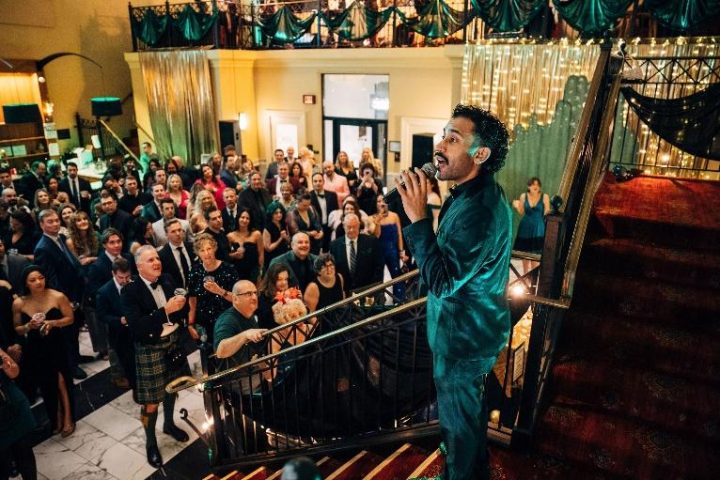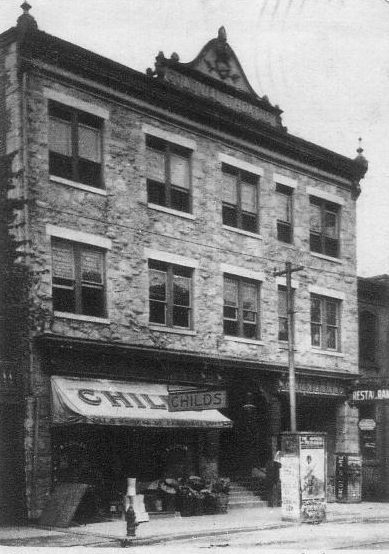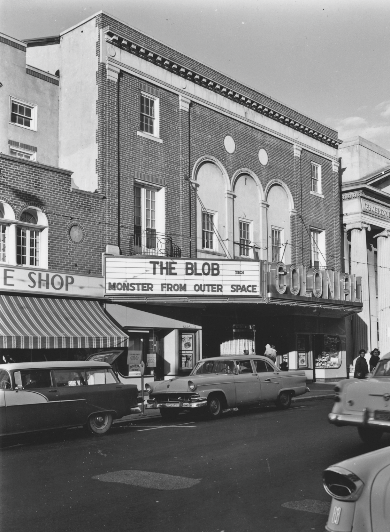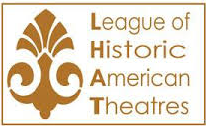
Time for action
Mid-1990s: Phoenixville, PA is long a shadow of the prosperity forged in its steel mill past. Bridge Street, foundation of the town’s commercial center, is structurally and economically dilapidated. And The Colonial Theatre—once a glistening showplace of opera, vaudeville, and picture shows—teeters on extinction. Rainwater drops from the ceiling. Seats are broken. The audience has vanished. Enter some local heroes.

Great hearts work alike
December 1996: The Phoenixville Area Economic Development Corporation purchases The Colonial. Not to raze it; to restore it. Simultaneously, three local residents—longtime Colonial patrons all—see the theatre’s potential as an arts venue. The shared vision of Mary Foote, Patricia Hartline, Jennifer Killeen, Ken Mumma, Eric Forsythe, Steve Proctor, Mark Binder, Carl LaMastra, and Rusty Strauss results in the formation of the nonprofit Association for The Colonial Theatre!

Lights, camera, action!
October 1, 1999: After more than a year of organizing, planning, and fundraising, The Colonial Theatre re-opens with a screening of Run Lola Run and a renewed dedication to arthouse and independent films, children’s programming, and classic films from its original 35mm projection system. This has proven to be the most promising of new beginnings.

Getting our house in order
2002 – 2017: The Colonial rejuvenates its historic spaces, all while presenting top-notch programming. Using a combination of public and private money, the facade is restored and pays respect to its mid-century glory. Interior renovations include the balcony, restrooms, and third-floor event spaces. Finally, when the Daily Republican newspaper vacates the neighboring space, ACT purchases the original home of the National Bank of Phoenixville and mounts a $6 million capital campaign, turning it into our beautiful “Bank Wing”!

A bright future
Today’s Colonial comprises the original 658-seat 1903 Theatre, the 174-seat White Rabbit Theatre, and the intimate, 65-seat Berry Theatre. Each space shows films (from 16mm to 4K) and hosts live performances. The Colonial’s perseverance has inspired—and continues to propel—Phoenixville’s resurgence. We embrace our community and reflect its broad and evolving culture. Together, we keep this heartbeat of Bridge Street pulsing true.

Our story continues
Our patrons are, of course, the stars of every show, but we also cherish—and depend upon—a stellar cast of supporters. Volunteers provide invaluable time and effort. Donors and Members are crucial to our livelihood. Ours is a living history being written on a daily basis. As we progress toward our 125th anniversary in 2028, please join us in crafting the next chapters.
Historical Moments and Timeline



- 1902 Harry Brownback builds The Colonial Opera House. First stage show September 5th. First movie presentation December 19th.
- 1903 The Colonial begins to screen film programs for audiences.
- 1915-1917 Notable appearances by D.W. Griffith, Mary Pickford, and Harry Houdini. Wurlitzer organ installed.
- 1928 The Jazz Singer plays at The Colonial, ushering in the sound era. The subsequent three decades saw the theatre thrive with films and occasional live events.
- 1958 The Colonial and Steve McQueen star in The Blob.
- 1975 In the era of chain moviehouses, local entrepreneurs Eric Knudsen, Jim Breneman, and Sam LaRosa pour heart and soul into keeping the theatre going.
- 1996 The Phoenixville Area Economic Development Corporation purchases the theatre. The Association for The Colonial Theatre is formed.
- 1999 The Colonial Theatre reopens as a non-profit theatre and presents Run Lola Run as its first film program.
- 2000 The Colonial hosts the inaugural Blobfest.
- 2002 Thanks to generous support from state, local, and individual funding, the facade renovation is completed!
- 2017 An alliance with Carnevale Eustis Architects allows for an expansion into the adjacent building, adds two new theaters and modern amenities. Screenings and events expand exponentially.
- 2018 Grand Jury Award from The Preservation Alliance of Greater Philadelphia. Public Impact Award from Pennsylvania Historic Preservation Awards.
- 2020 Pandemic closure. A Go Fund Me drive toward re-opening exceeds its $50,000 goal.
- 2021 Gradual reopening with capacity restrictions.
- 2024 The 25th annual Blobfest is the largest and most successful to date.
Support the Colonial
The first 125 years are always the toughest. We're still here, though, and we are committed to our community, its collective creative soul, and The Colonial’s future. We have much to do, and we will achieve more with help from you.
Make memories. Make history. Make a difference. Support The Colonial.
DonateColonial Affiliations

Founded in 1976, the League of Historic American Theatres (LHAT) is a nonprofit organization with the main purpose of sustaining historic theatres across North America for the benefit of their communities and future generations. Jennifer L. Carlson, the Colonial’s executive director, sits on the LHAT board of directors.

The Colonial Theatre is a proud member of the Chester County Chamber of Business and Industry, whose mission is to provide effective connections that enhance advocacy, business development, and community investment in the Chester County area and the surrounding region.

The Association for the Colonial Theatre (ACT) d.b.a. The Colonial Theatre, has an updated profile on GuideStar, a nonprofit research platform administered by Candid. Click here for transparent information about our organization.